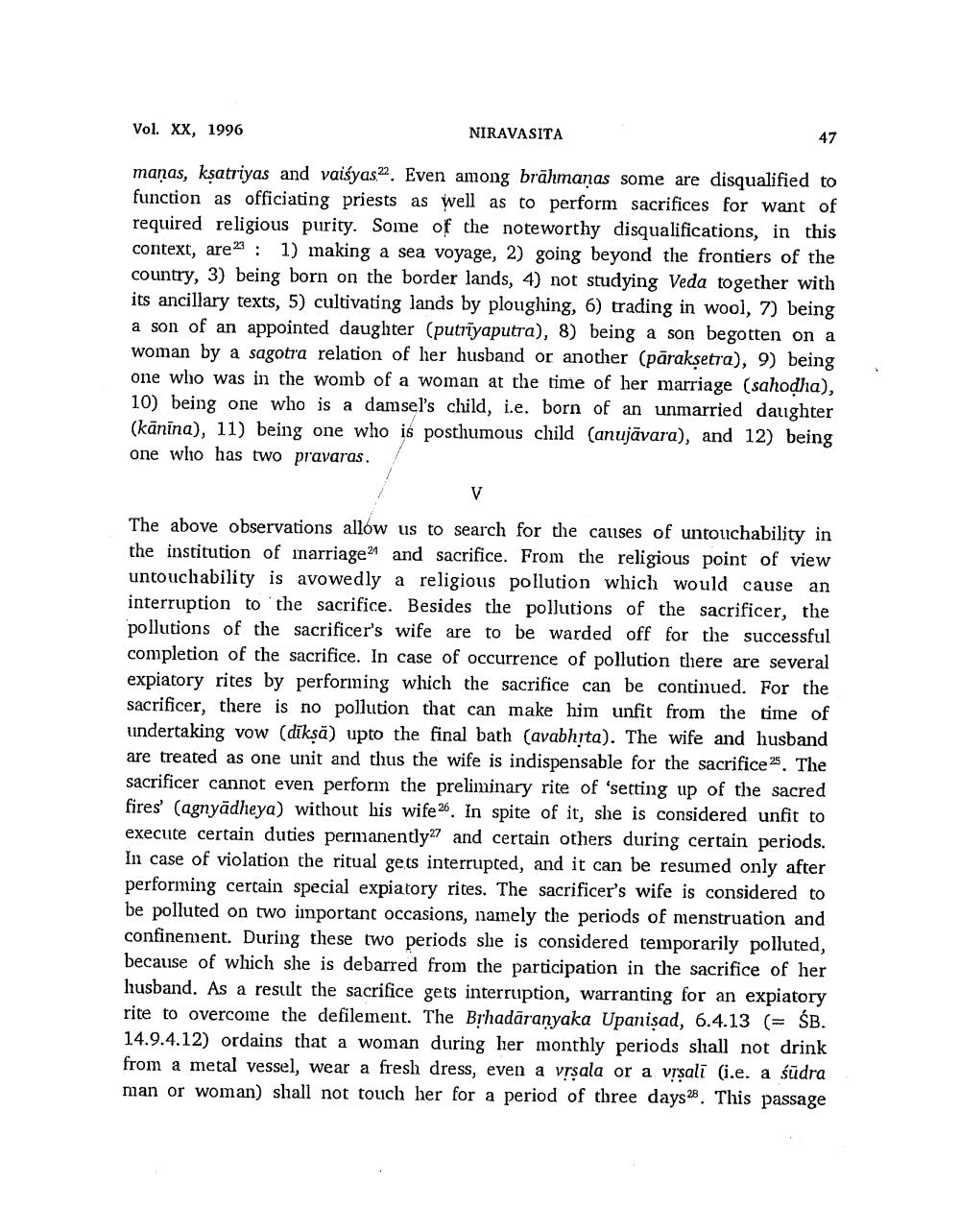________________
Vol. XX, 1996
manas, ksatriyas and vaisyas. Even among brahmanas some are disqualified to function as officiating priests as well as to perform sacrifices for want of required religious purity. Some of the noteworthy disqualifications, in this context, are: 1) making a sea voyage, 2) going beyond the frontiers of the country, 3) being born on the border lands, 4) not studying Veda together with its ancillary texts, 5) cultivating lands by ploughing, 6) trading in wool, 7) being a son of an appointed daughter (putriyaputra), 8) being a son begotten on a woman by a sagotra relation of her husband or another (pärakṣetra), 9) being one who was in the womb of a woman at the time of her marriage (sahodha), 10) being one who is a damsel's child, i.e. born of an unmarried daughter (kanina), 11) being one who is posthumous child (anujävara), and 12) being one who has two pravaras.
NIRAVASITA
47
V
The above observations allow us to search for the causes of untouchability in the institution of marriage and sacrifice. From the religious point of view untouchability is avowedly a religious pollution which would cause an interruption to the sacrifice. Besides the pollutions of the sacrificer, the pollutions of the sacrificer's wife are to be warded off for the successful completion of the sacrifice. In case of occurrence of pollution there are several expiatory rites by performing which the sacrifice can be continued. For the sacrificer, there is no pollution that can make him unfit from the time of undertaking vow (dikṣā) upto the final bath (avabhṛta). The wife and husband are treated as one unit and thus the wife is indispensable for the sacrifice". The sacrificer cannot even perform the preliminary rite of 'setting up of the sacred fires (agnyadheya) without his wife. In spite of it, she is considered unfit to execute certain duties permanently and certain others during certain periods. In case of violation the ritual gets interrupted, and it can be resumed only after performing certain special expiatory rites. The sacrificer's wife is considered to be polluted on two important occasions, namely the periods of menstruation and confinement. During these two periods she is considered temporarily polluted, because of which she is debarred from the participation in the sacrifice of her husband. As a result the sacrifice gets interruption, warranting for an expiatory rite to overcome the defilement. The Bṛhadaranyaka Upanisad, 6.4.13 ( SB. 14.9.4.12) ordains that a woman during her monthly periods shall not drink from a metal vessel, wear a fresh dress, even a vṛṣala or a vṛsalī (i.e. a śūdra man or woman) shall not touch her for a period of three days 28. This passage




